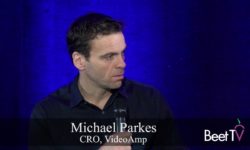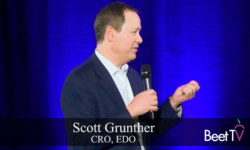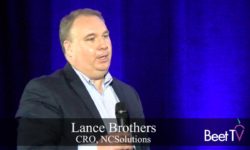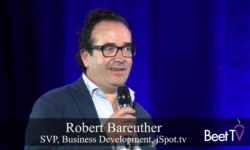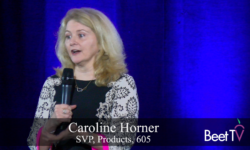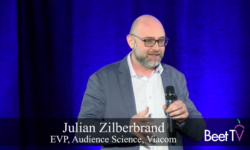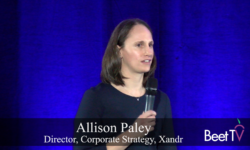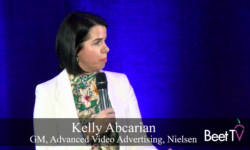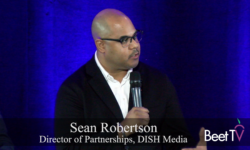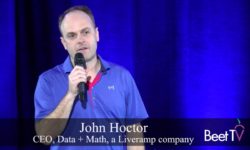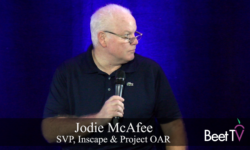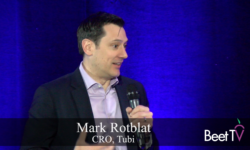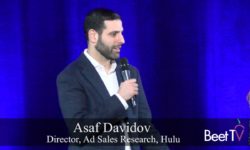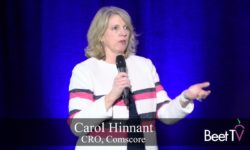SAN JUAN, PR– With all of the different sources of data informing the TV industry, fragmentation is a natural consequence. In a town hall interview with Beet.TV’s Jon Watts at the Beet Retreat in San Juan, Lisa Giacosa, global md of data and analytics for Spark Foundry, explained how some collaboration is necessary in order to create a common lexicon.
In the ‘50s, the industry was trying to prove that TV worked through things like econometric modeling. By the ‘90s, there was a growing over-excitement at the thought that everything could be measured, yet there’s still no full picture.
“There are two reasons why TV attribution is important,” Giacosa said. “One is that we do need to redress that balance, but two, we need to make sure that we don’t do it in a silo.”
Giacosa explained that it’s important to look at the consumer experience as a holistic mix. Attribution must be done but within the context of everything else that the industry does and every experience that the consumer has.
This has become easier in some sense, because there’s no lack of data, but also a bit harder for two reasons. The first is the communal industry lexicon that is used, and the second is the currency.
“We’ve been trading off GRPs and old lexicon for quite some time and we’re quite happy with that,” Giacosa said. “But we need to redress that balance and think about how to take that to not even the future—it’s still years ago at this point that we have to catch ourselves up to get to a place where we have all of that set top box data, all of that connected TV data in one place because at the end of the day TV attribution is not just TV, it’s every video platform.”
There’s a lot of fragmentation across the industry, and in order to help solve it, there has to be a shift in focus on data costs that come with outcomes.
“For me, it’s more about how we connect the dots,” Giacosa said. “How we collaborate as an industry, and make the data more accessible and more palatable for clients and corporates to get to understand that business, because I think it’s all there, it’s just a case of how we break down the walls, how we bring all that together and bring it across different platforms.”
Stitching together a common methodology, lexicon, and currency will be the first step needed to make this happen, and Giacosa said that the industry collectively has the people and resources to make that happen.
A lot of performance advertisers work in small increments, day to day or hour to hour. Brand equity has a huge impact on how fast that works. She cited the success of Peloton in the past several months as an example.
“The impact that social media can have on brand equity and how fast it moves really changes how we think about TV attribution because how the brand is performing has an impact also on how it’s going to perform in terms of the TV attribution and the effect that it’s having on your business,” Giacosa said.
This video was produced at the Beet Retreat San Juan 2020 sponsored by 605, DISH Media, NBCU, Roundel & Tubi. For more videos from the series, please visit this landing page.






